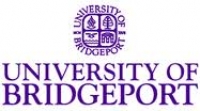






The Biomedical Engineering program takes an integrated and interdisciplinary approach to advance the knowledge of its graduates toward developing an understanding of fundamental issues at the interface of engineering, biology, and medicine. Students will learn about the evolutionary process, focusing on how living things function and how several branches of engineering and science are interconnected in these processes. Biomedical Engineering has the potential to improve human health through cross-disciplinary research and application that integrate the engineering sciences with the biomedical sciences and clinical practice. This program builds knowledge, skills, and critical thinking necessary to further new discoveries in tissue regeneration, biomaterials, biologically inspired materials, tissue engineering, physiological measurements, bioelectronics, biomechanics, bioMEMS, and communications in cells, biosensing, biorobotics, biosignaling, bioinormatics and other associated processes pertaining to bioengineering.
| Number | Duration |
|---|---|
| 2 | year |
Consistent with the university’s vision, and with the missions of the School of Engineering and the Biomedical Engineering Program, the educational objectives for the Master of Science in Biomedical Engineering program were established as follows: Graduates of the BME program will have a sound integrated knowledge of science and engineering fundamentals with respect to the biomedical issues. Graduates will be proficient in the use of modern techniques, tools, procedures, and information sources which are useful in the definition and solution of problems in biomedical engineering. Graduates will have the ability to apply their scientific knowledge and engineering tools and techniques to design useful and economically feasible novel materials, devices, systems and processes which address problems relevant to the fields of biomedical engineering. Graduates will have the breadth and depth of knowledge, and a commitment to continued learning, necessary to understand the economic, social, ethical, and aesthetic aspects of their profession and their work, and to effectively communicate the results of their work.